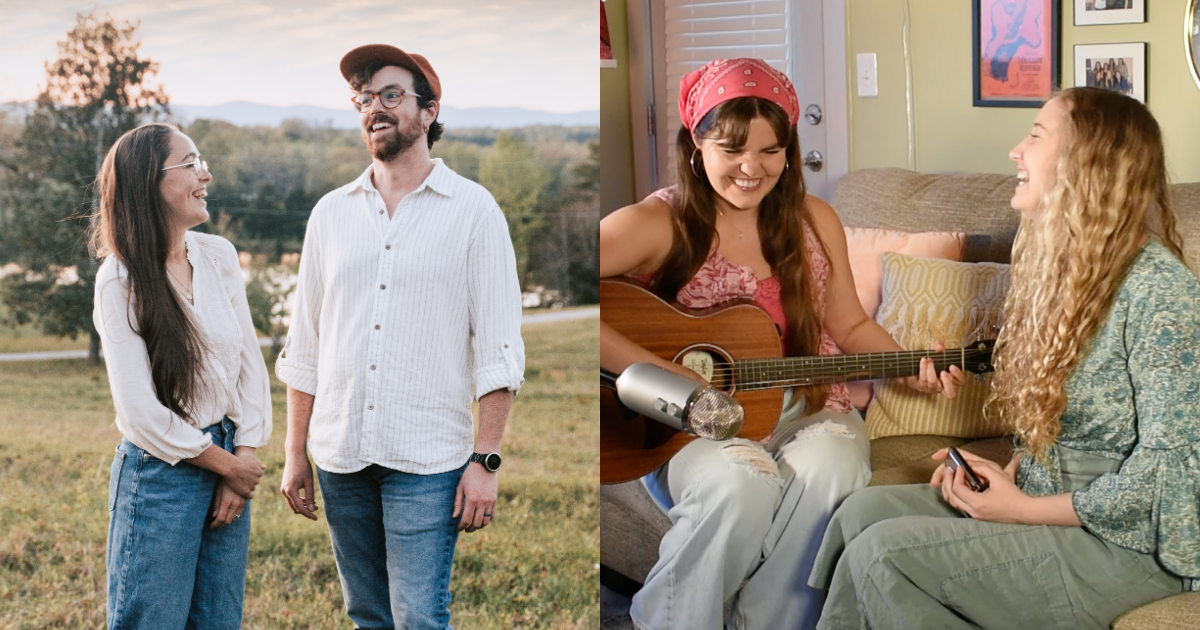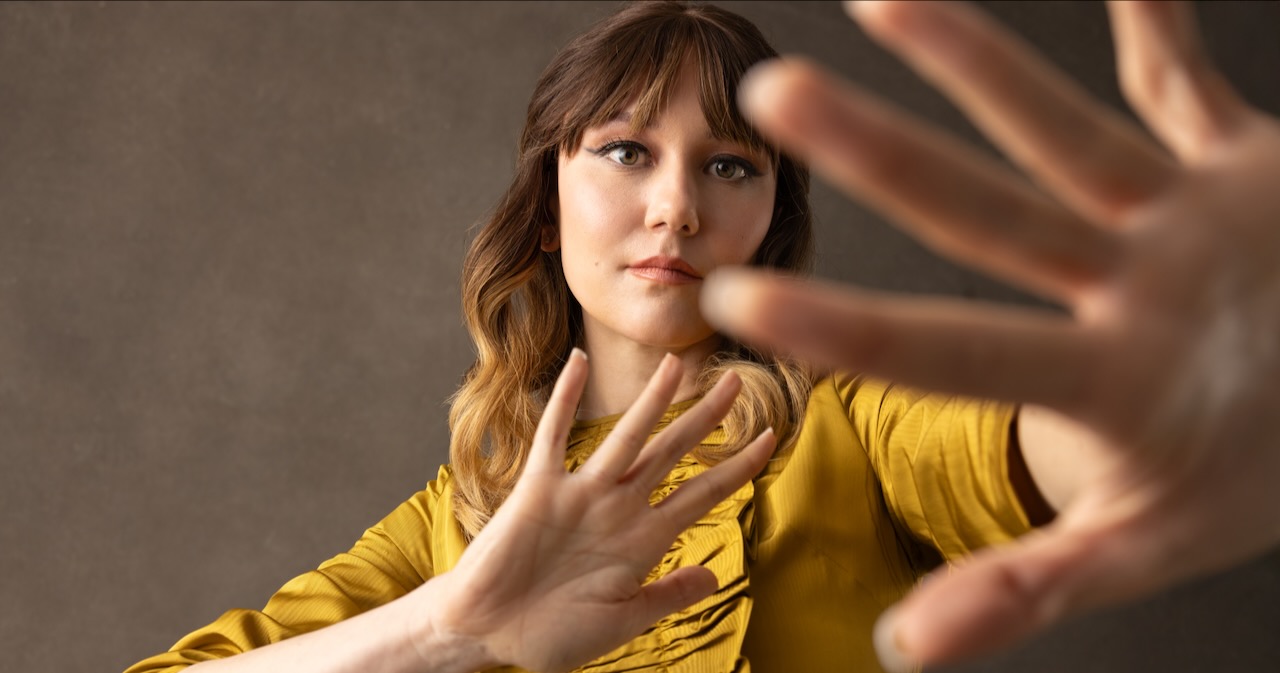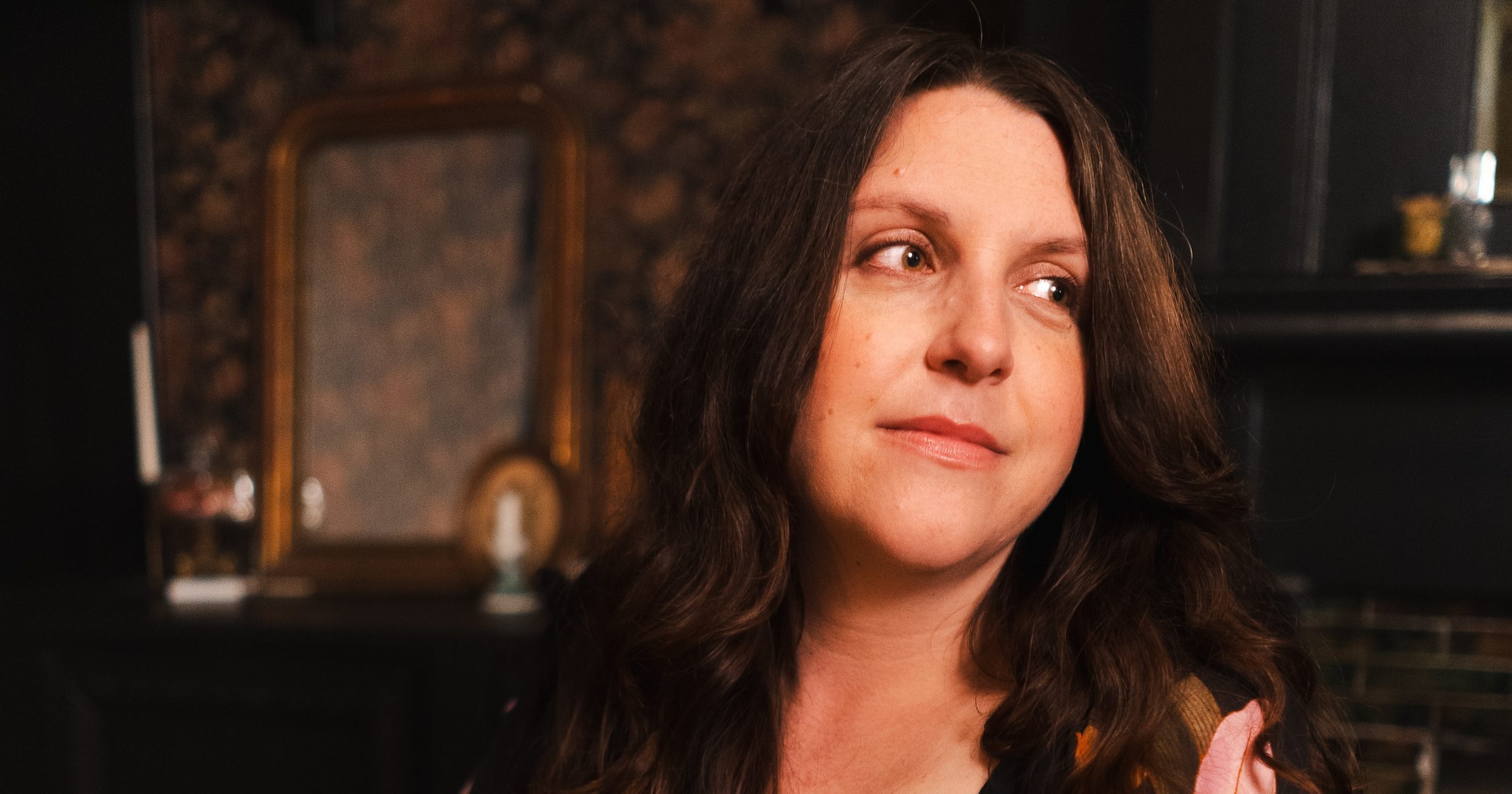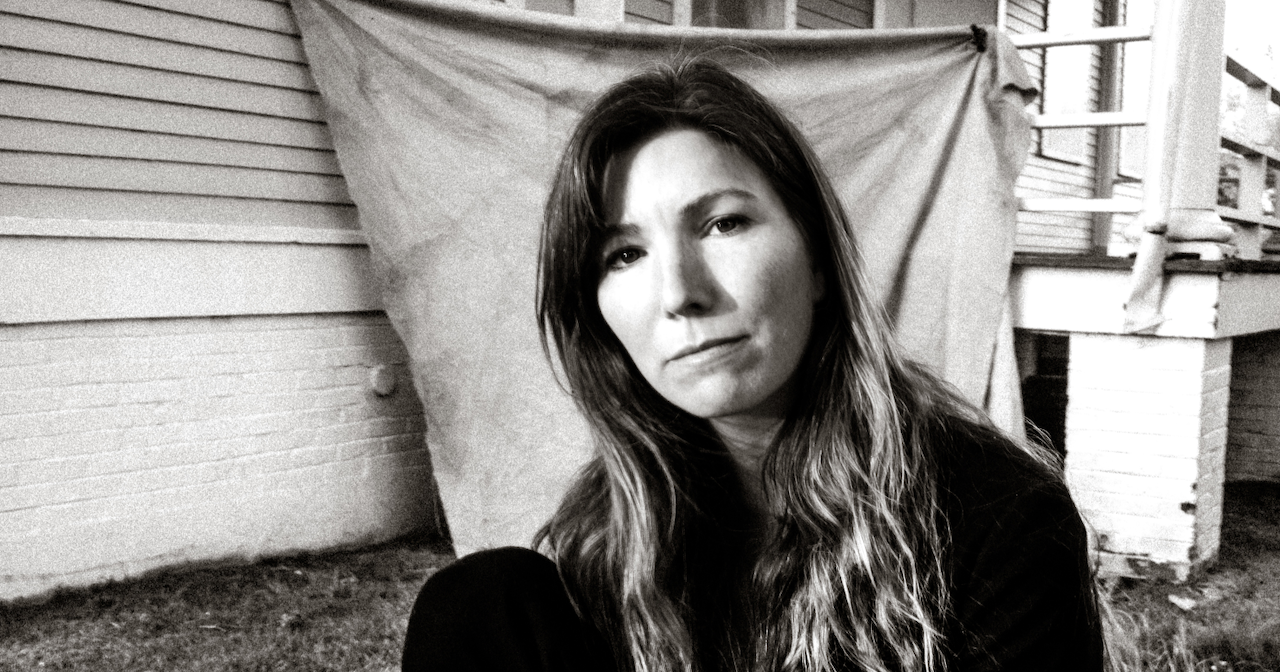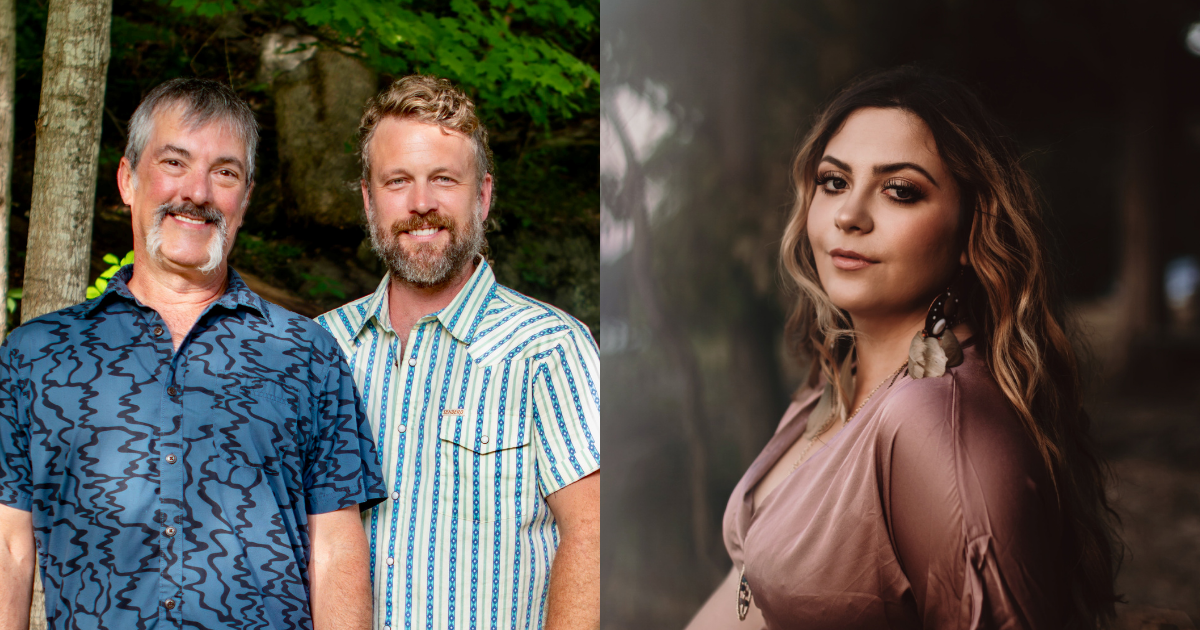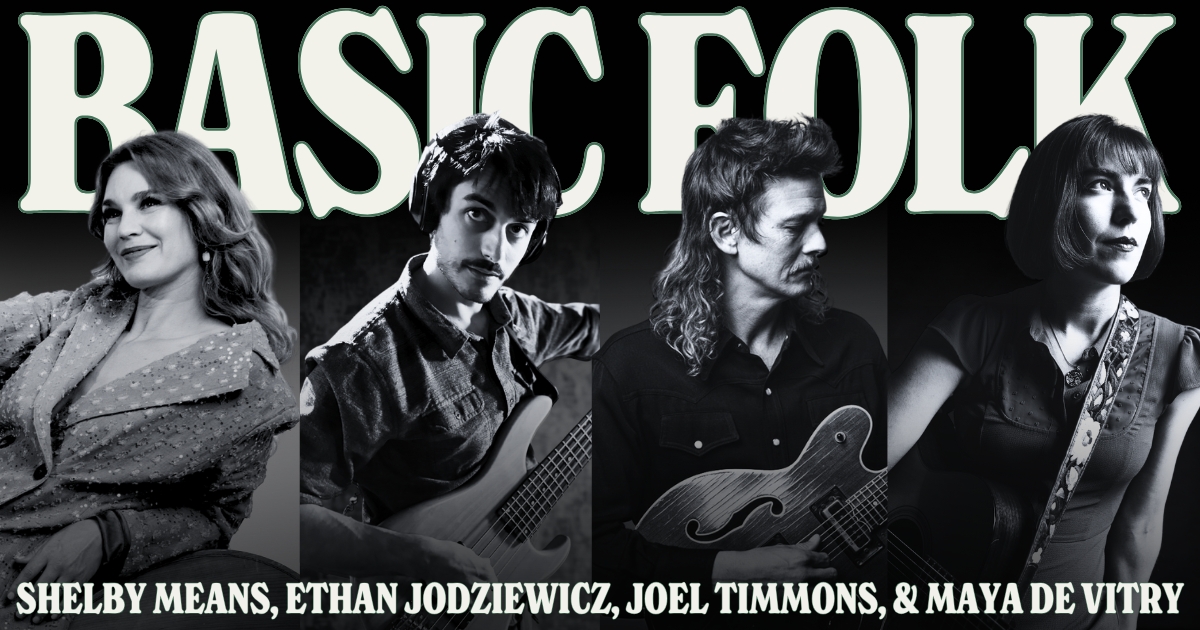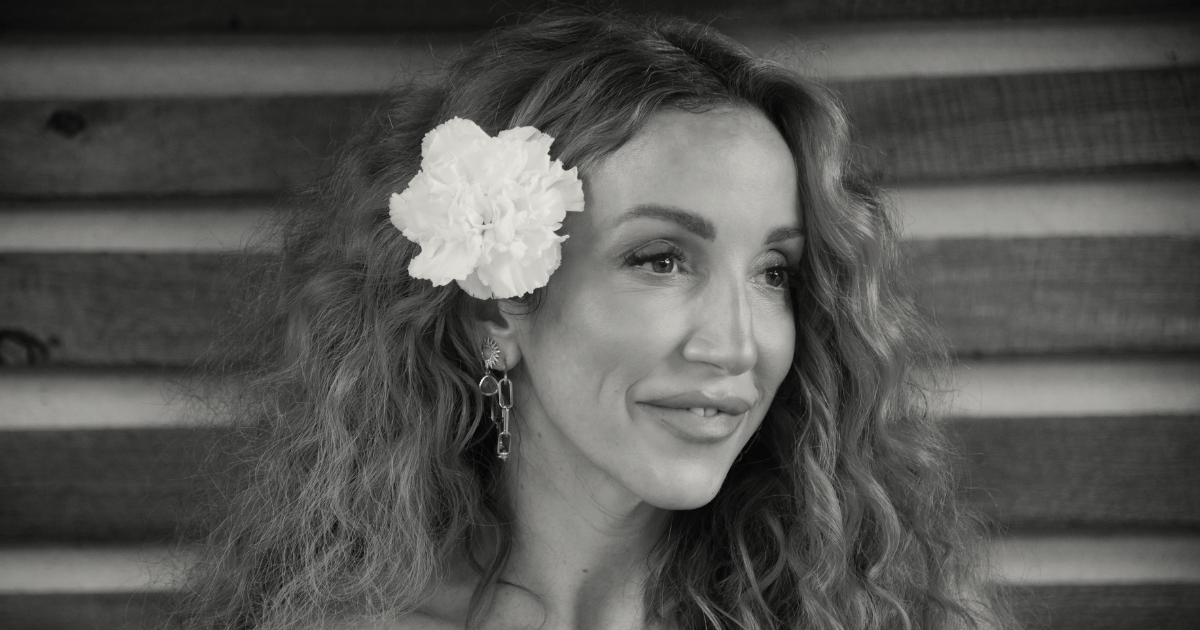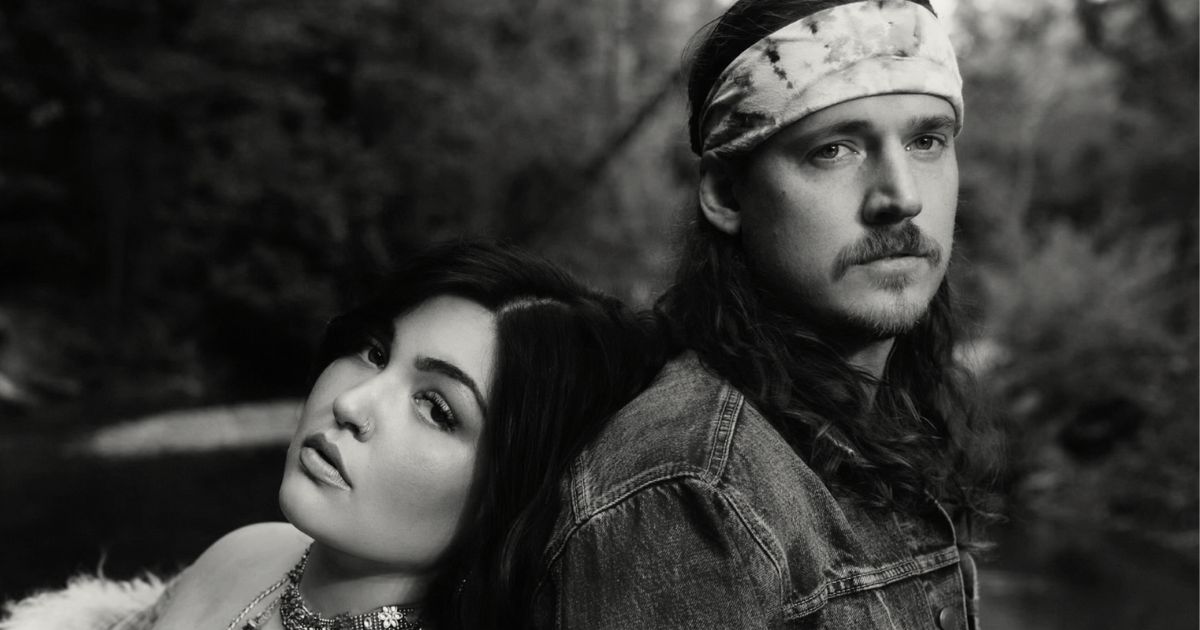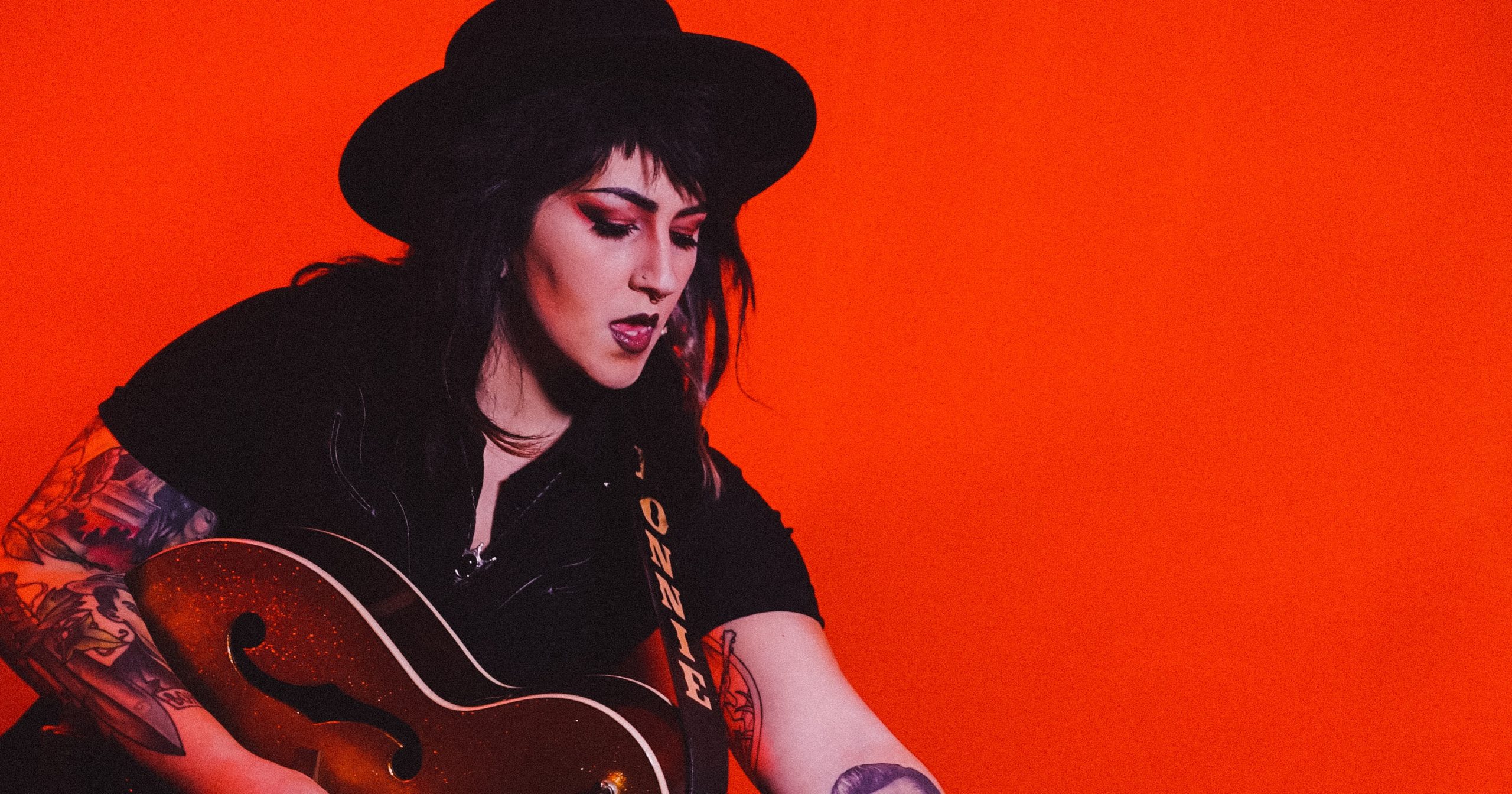You Gotta Hear This! We’ve got bluegrass, Americana, folk, and so much more for you in our weekly roundup of new music and premieres.
Kicking us off, Western North Carolina bluegrass greats Balsam Range dust off an old track, “Virginia Girl,” from member Caleb Smith’s archive solo album for their own rendition – with a special “vintage” banjo solo added in. From just down the mountains in upstate South Carolina, bluegrass and roots duo the Foreign Landers share their lovely new song, “Smell the Rose,” which reflects on the good, simple gifts we all receive while walking through life (if we’re open to receiving them!).
Elsewhere in our collection, another folk-Americana duo, Oliver the Crow, return with new music for the first time in a few years, offering a new video for “Burn It Down,” a song about finding redemption in starting over, starting fresh. And Rachel McIntyre Smith – who has been sharing a mini-series of cover song performance video collaborations on BGS over the past few weeks – unveils an impeccable cover of Kacey Musgraves’ “Slow Burn” with fellow artist Sammi Accola joining in.
Don’t miss Natalie Del Carmen singing “El Cortez,” an energetic country-folk song about spending time with her father and the rarity of still enjoying first-time experiences as an adult, when such firsts are much more common as a child. You’ll also hear singer-songwriter Jared Dustin Griffin fingerpicking and growling through “Shovel,” a new track that meditates on sacrifices and all you can gain from the labor of putting yourself aside.
Bringing us vibey indie roots rock, Liam Kazar contemplates “The Word The War” on his new single from his upcoming album, Pilot Light. You can watch the video for this musical exploration of loneliness and the journey (rather than the destination) below. And finally, from all the way across the globe, the High Street Drifters of Melbourne, Australia, introduce their down-under bluegrass to BGS with “Words for Leaving,” a song about distance, longing, and goodbyes – sweet and bittersweet.
It’s a stout collection this week and we’re excited for you to get to it. You know what we say every time– You Gotta Hear This!
Balsam Range, “Virginia Girl”
Artist: Balsam Range
Hometown: Haywood County, North Carolina
Song: “Virginia Girl”
Release Date: September 5, 2025
In Their Words: “In 2013, I was putting together some tunes for a solo album. Patton Wages was my first call to help me with his killer banjo playing. I first met Patton at Everett’s Music Barn in Suwanee, Georgia, around 2005 and I immediately was a fan. We became friends and stayed in touch. He became Balsam Range’s first call if Marc Pruett ever needed to miss a gig and Patton always filled Marc’s great picking with greatness of his own.
“I wrote ‘Virginia Girl’ in March of 2013 and it was slated to be on my solo album along with “God Knows,” “The Touch,” a few more originals, and a few standards. Patton, Aaron Ramsey, Adam Steffey, and Nicky Sanders helped me create the album. I’ve sat on the tune and the album since 2013, frequently revisiting it when Balsam Range needed a tune to add to one of our albums, but ‘Virginia Girl’ has remained unused for 12 years… until now! Balsam Range recut the tune and I had an idea to see if we could fly Patton’s original banjo cut from 2013 to our new 2025 cut and it worked flawlessly, as if it were meant to be. Our engineer Clay Miller at Crossroads Studios in Asheville, North Carolina, worked his magic and did such an awesome job! Patton, I’m honored that you agreed to this and I’m honored to be your friend! We hope you enjoy ‘Virginia Girl.'” – Caleb Smith
Track Credits:
Caleb Smith – Acoustic guitar, lead vocal
Tim Surrett – Upright bass, harmony vocal
Patton Wages – Banjo
Marc Pruett – Banjo
Don Rigsby – Fiddle, harmony vocal
Alan Bibey – Mandolin
Natalie Del Carmen, “El Cortez”
Artist: Natalie Del Carmen
Hometown: Los Angeles, California
Song: “El Cortez”
Album: Pastures
Release Date: September 12, 2025 (song); January 30, 2026 (album)
Label: Torrez Music Group
In Their Words: ‘”El Cortez’ was written for my dad, so I knew early on that I had to get it right. Last holiday, I gambled with him in Vegas for the first time at the El Cortez Hotel. It was such a fun time together. When you’re young, your first experiences go over your head because everything is a first. But then you become an adult and the pool of opportunity to have first experienced memories gets smaller. I have more respect for my parents now than I ever could have understood as a kid. It’s about getting familiar with all the ways you feel rich in life that really don’t involve money.” – Natalie Del Carmen
Track Credits:
Natalie Del Carmen – Vocals, acoustic guitar, banjo
Nick Antonelli – Bass
Amelia Eisenhaeur – Fiddle
Jordan Ezquerro – Organ
Tanir Morrison – Drums, percussion
Amelia Eisenhauer – Percussion
The Foreign Landers, “Smell the Rose”
Artist: The Foreign Landers
Hometown: Travelers Rest, South Carolina
Song: “Smell the Rose”
Release Date: September 12, 2025
In Their Words: “‘Smell the Rose’ was written with our good friend Danielle Yother as a reflection on the good gifts we’re given in this life – things like music shared with friends, laughter around a campfire, sunsets, or driving down a beautiful highway with the windows down. Those moments are full of beauty, but they also slip away with time. In writing this song, we wanted to capture both the joy and the ache of that truth. For us, it points to something deeper: a reminder that while all good things here fade, they’re signposts that lead us to the one source of lasting love and beauty – God himself. Our hope is that this song encourages listeners to savor those fleeting gifts while also looking beyond them to the greater hope we have in him.” – The Foreign Landers
Track Credits:
Tabitha Agnew Benedict – Lead vocals, guitar, banjo
David Benedict – BGVs, mandolin
Danielle Yother – BGVs
Julian Pinelli – Fiddle
Nate Sabat – Bass
Jared Dustin Griffin, “Shovel”
Artist: Jared Dustin Griffin
Hometown: San Francisco, California
Song: “Shovel”
Album: The Perseverance of Sisyphus
Release Date: September 26, 2025
Label: First City Artists
In Their Words: “‘Shovel’ was born in the heat of July 2020, my hands fumbling through unfamiliar fingerpicking patterns until the song unearthed itself. The melody came slow, like digging through hard earth, and the lyrics followed in a single, fevered afternoon. It’s a meditation on sacrifice – how we bury parts of ourselves for something greater and the toll that takes. In the shadow of calvary this song wields its own blade, turning over the soil of belief and what it costs.” – Jared Dustin Griffin
Track Credits:
Jared Dustin Griffin – Guitar, harmonica
Heather Little – Harmonies
Fergal Scahill – Fiddle, mandolin
Nathan Alef – Piano
Matt Greco – Piano, organ
Dave Campbell – Banjo
Frank Swart – Bass
Derrick Phillips – Drums
The High Street Drifters, “Words For Leaving”
Artist: The High Street Drifters
Hometown: Melbourne, Australia
Song: “Words for Leaving”
Release Date: September 3, 2025
In Their Words: “‘Words for Leaving’ began its life at a lonely bus station in between where I was headed and who I was saying goodbye to. We wanted the track to carry that bittersweet feeling, balancing lyrical tenderness with the bluegrass pulse moving you down the road. Every instrument is a part of the dialogue, echoing the goodbyes we say to loved ones knowing that loving someone always carries the possibility of losing them. Being in Australia, so far from much of the rest of the world and with so much distance between places and people, gives this track a weight I think a lot of people will connect with. The push and pull between heartache and hope.” – Justin Vilchez, mandolin
Liam Kazar, “The Word The War”
Artist: Liam Kazar
Hometown: Chicago-raised, Brooklyn-based
Song: “The Word The War”
Album: Pilot Light
Release Date: November 7, 2025
Label: Congrats Records
In Their Words: “I can’t say I know exactly what the word is, what the war is. Utter loneliness at the mountain top, perhaps? Not that I’ve ever been there. Something close to knowing and loving the path, not the destination. Poor sleepless queen and her sleepless nights alone, but whatever, that’s her problem. Get me to the riff!” – Liam Kazar
Video Credits: Directed, produced, and edited by Austin Vesely.
Kevin Veselka – Director of photography
Featuring Emily Neale.
Rachel McIntyre Smith, “Slow Burn” featuring Sammi Accola (Honeysuckle Friend Sessions)
Artist: Rachel McIntyre Smith and Sammi Accola
Hometown: Oliver Springs, Tennessee
Song: “Slow Burn”
Latest Album: Honeysuckle Friend (Deluxe)
Release Date: September 10, 2025 (video); June 27, 2025 (deluxe EP)
In Their Words: “I have had the pleasure of sharing the stage with Sammi Accola at writers rounds over the years, but we had never hung out one-on-one until this recording. I truly felt like we became friends during this session. I think that’s evident in the video. We got lost in the groove of this Kacey Musgraves classic and had so much fun with it. This is the final video in the three-part series with BGS as part of You Gotta Hear This, but the Honeysuckle Friend Sessions continue on my YouTube channel!” – Rachel McIntyre Smith
“I love how naturally it came together – Rachel and I had a completely different song in mind, but the moment I saw the Kacey Musgraves vinyl on her living room wall and we started talking about the mutually loved album, the choice felt easy. ‘Slow Burn’ is just the best – gorgeous, full of harmonies, and somehow both light and grounding. In the middle of a hectic week, it was the perfect song to play. A reminder to slow down, appreciate the people in our life, and laugh at lines like, ‘Grandma cried when I pierced my nose,’ relishing our twenty-something years. I love collaborating with Rachel and celebrating the power and simplicity of a great lyric.” – Sammi Accola
Video Credits: Filmed and edited by Rachel McIntyre Smith.
Watch more Honeysuckle Friend Sessions on BGS here and here.
Oliver the Crow, “Burn It Down”
Artist: Oliver the Crow
Hometown: Nashville, Tennessee
Song: “Burn it Down”
Album: A Feather in a Hurricane
Release Date: September 5, 2025 (single); November 28, 2025 (album)
In Their Words: “‘Burn it Down’ is a song about starting over – a song about building something great and how that sometimes means taking down whatever’s in its place. To illustrate this point, this is my fourth rewrite of a song using this same chorus. Over many years of scratching out verses and starting over, my life itself became a bunch of fresh starts. Maybe this is what led to the final version you hear today – one of the more stripped-back and bare songs from an album of mostly larger, fuller production.” – Ben Plotnick
Track Credits:
Ben Plotnick – Fiddle, songwriter
Kaitlyn Raitz – Cello
Anthony da Costa – All other sounds, producer
Video Credit: Kaitlyn Raitz
Photo Credit: the Foreign Landers by Nicole Davis; Rachel McIntyre Smith and Sammi Accola courtesy of the artists.
